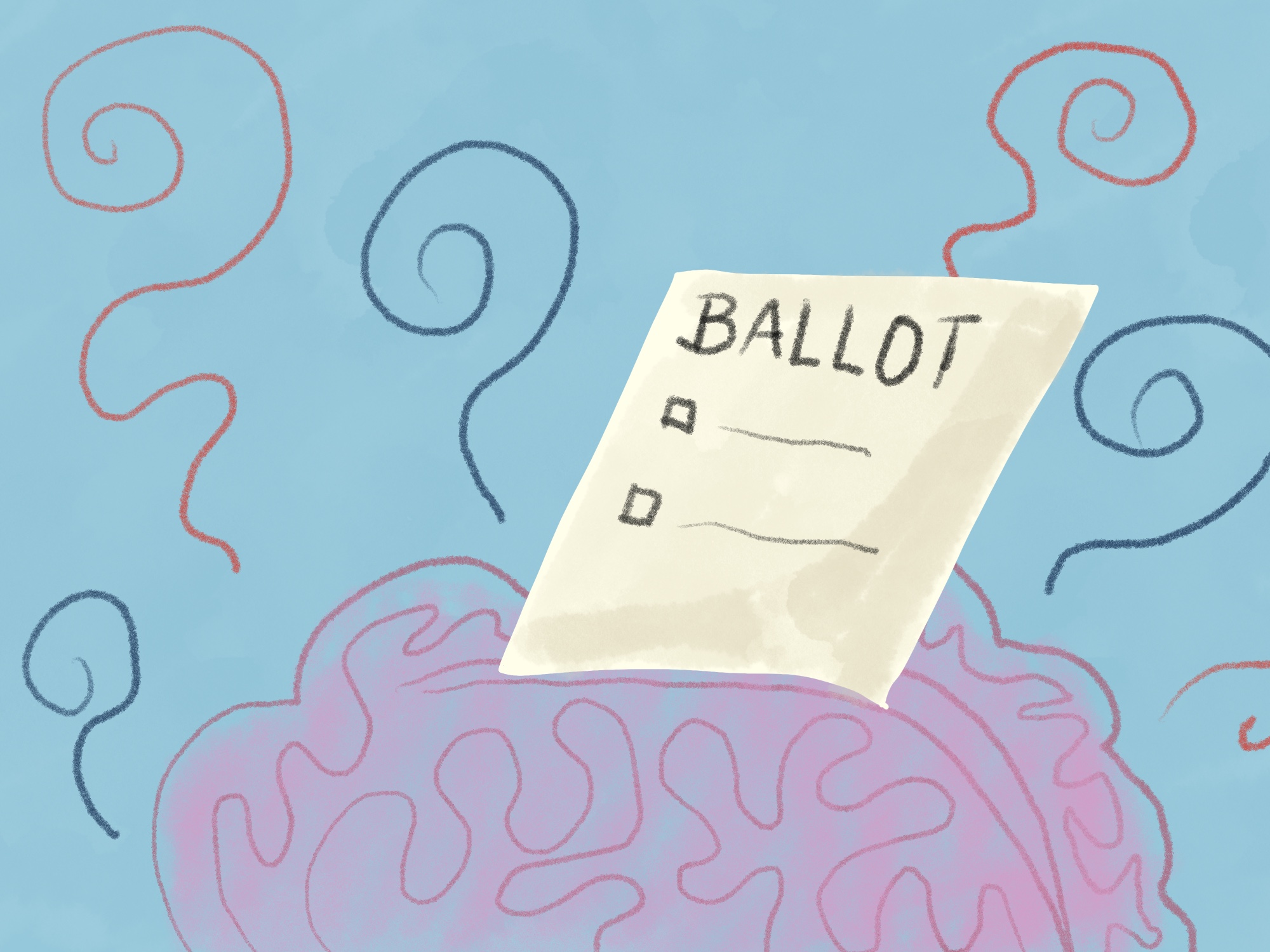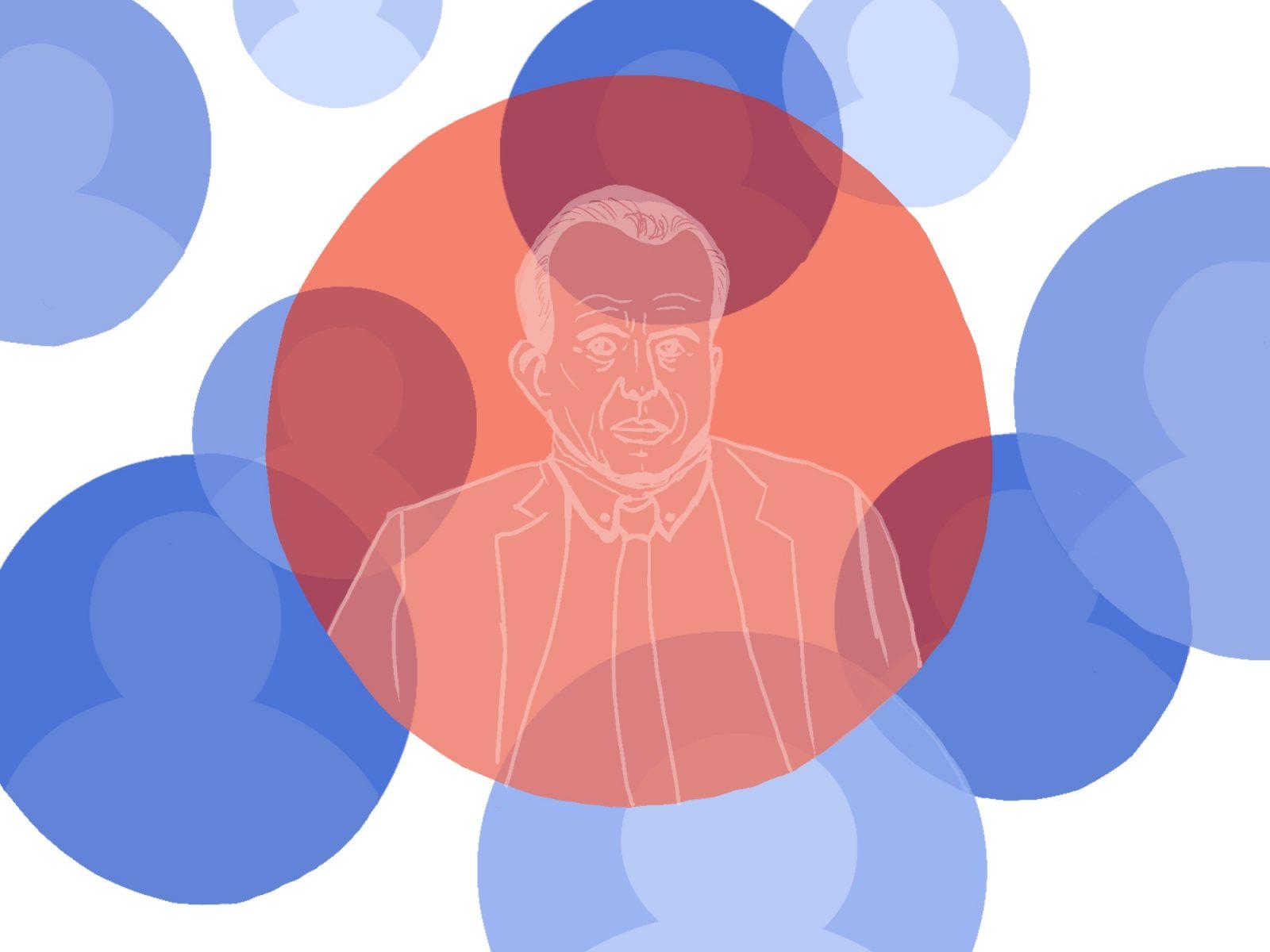I haven’t noticed many people enthusiastic about politics lately. Well, I have seen a lot of TikTok edits of Vice President Kamala Harris’ laugh and former President Donald Trump talking about pet-eating immigrants, but I think that really sums up most people’s attitudes towards this election cycle: “If you don’t laugh, you’ll cry.”

It’s hard not to be disillusioned by multiple international wars, human rights at stake and a completely fragmented, polarized country. And despite all these massive, pressing crises, we still have to listen to a presidential candidate convince us that the liberals want to legalize post-birth abortion.
This disillusionment is valid — but it’s also hurting our country. Our voter turnout is almost shameful, especially among younger voters. Only about 40% of 18–29 year olds voted in 2016, compared to more than 70% of people over 60, according to Our World in Data.
Actually, so few people voted in the 2016 election that the “did not vote” numbers exceeded the votes for any individual candidate, according to CNBC. 100 million people, for one reason or another, did not cast a vote. If there were a candidate representing those people, they would easily have won, considering that Clinton received about 66 million votes, and Trump received about 63.
There are a lot of systemic reasons why people can’t vote, such as mail-in ballot restrictions or polling place closures. These reasons often disproportionately affect people of color and continue to systematically oppress members of our society, according to the ACLU.
But others simply choose not to vote, even when they have every opportunity. This is such a blatant disregard for our fundamental civic rights as Americans — rights that, for a lot of us, were incredibly hard-won.
No, refraining from voting because you disagree with both candidates does not make you cool. It doesn’t make you some sort of political martyr that will be remembered in history books. It makes you irresponsible and inconsiderate because you had the chance to be a part of real change, and you chose to stay silent.
The same sentiment applies to those who vote for niche candidates who don’t have a real shot at winning. I get that no candidate is perfect, and it’s really frustrating to endorse someone you don’t agree with 100 percent. But we also have to be pragmatic and realize that someone has to run the country, and it’s going to be one of two people every presidential election cycle.
There’s also this idea that one singular vote doesn’t matter. We think that our own individual contribution can’t possibly change the direction of the nation, because the majority has spoken and decided for us already.
On some level, that is true. Presidential elections are a matter of millions of votes, and it’s incredibly easy to look at those big numbers and feel inconsequential. But there are a lot of times where a singular vote can make a big difference.
Let’s go back to the year 2000. Florida was a crucial state in deciding the next presidency, but Bush and Gore were so close that votes had to be recounted. The case went to the Supreme Court, and in the end, it was the Floridian votes that decided the future of America.
That’s not the only example of an extremely tight election, and it won’t be the last. In the 2012 Iowa Republican Caucus, Rick Santorum beat Mitt Romney by just 34 votes. Out of 2.9 million votes, Al Franken won the 2012 Minnesota Senate Race by 312 votes.
If that doesn’t convince you to cast a vote, look to your local elections, which often have really small turnouts and are probably more likely to affect your day to day life anyway.
I can’t say that your singular vote is going to fundamentally change the direction of the nation, but I also can’t say that it won’t have a huge impact. If just you and a few friends all agree to vote, and those friends convince a few friends, and so on, that genuinely has major political potential.
There’s a lot on the line in November. We all have a chance to be a part of it.





























































































































Cleon XIII • Sep 17, 2024 at 9:09 am
The fact that you in the press already decided which are the “swing states,” combined with the Electoral College, make it pretty pointless to vote if you don’t live in one of those states.
Regardless, no matter who gets elected, America will continue to: go trillions deeper in debt, overspend on defense and entitlements, underspend on education + infrastructure + STEM, and make war on any easy targets that look at us funny.